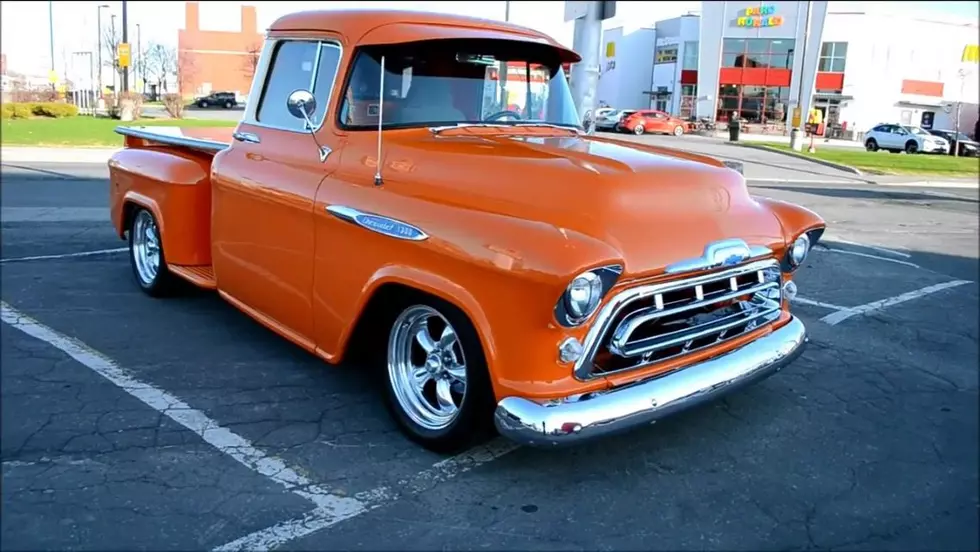
Are You Ready for a Natural Disaster Idaho? You’ll Need These
I came across a "Build a Kit" list for things you should have in the event of a natural disaster strike. I hate even writing this message to everyone because who wants to put those bad VIBES out there right? I grew up in Houston, Texas and the weather is just something you get used to. I have seen tornadoes from my car window, gone through a few hurricanes where the eye went directly over our house. Sidenote: Imagine 100 mph winds, pelting rains, and darkness. When the eye rolls over everything clears up, sunny skies, no rain or the wind. That's wicked.
Does Idaho even get natural disasters like hurricanes, tornadoes, or earthquakes? Let's not forget wildfires that plague our area every year destroying everything in it's path including the lives of our first responders. You won't see a hurricane and probably won't come in contact with a tornado. Idaho HAS calculated over 260 earthquakes since September 2. Do you read the part, "since." That's what we call "cray-cray."
Could YOU take care of yourself if the power went out, the city shut down, and you had to survive with only the things in your home? Ready.gov is something I came across that details out what you need to survive. Better to be safe than sorry right?
Build A Kit - It's suggested that you store these packages in something sealed like a duffle bag or one of those plastic bins. Check the recommended items below and these come directly from the website. I didn't ad-lib because it's pretty devastating what these people are going through in the South. This isn't a joking matter and it's okay to over react by stocking up now.
Basic Supplies
Water (https://www.ready.gov/water) - one gallon of water per person per day for at least three days, for drinking and sanitation Food (https://www.ready.gov/food) - at least a three-day supply of non-perishable food.
Battery-powered or hand crank radio and a NOAA Weather Radio with tone alert
Battery-powered or hand crank radio and a NOAA Weather Radio with tone alert
FlashlightFirst aid kit
Extra batteries
Whistle to signal for help
Dust mask to help filter contaminated air and plastic sheeting and duct tape to shelter-in-place (https://www.ready.gov/shelter) Moist towelettes, garbage bags and plastic ties for personal sanitation
Wrench or pliers to turn off utilities (https://www.ready.gov/safety-skills)
Manual can opener for food
Local maps
Cell phone with chargers and a backup batteryDownload the Recommended Supplies List (http://www.fema.gov/media-library/assets/documents/90354) (PDF)
Additional Supplies
- Non-prescription medications such as pain relievers, anti-diarrhea medication, antacids or laxatives
- Glasses and contact lense solution
- Infant formula, bottles, diapers, wipes, diaper rash cream
- Pet food and extra water for your pet
- Cash or traveler's checks
- Important family documents such as copies of insurance policies, identification and bank account records saved electronically or in a waterproof, portable container
- Sleeping bag or warm blanket for each person
- Complete change of clothing appropriate for your climate and sturdy shoes
- Household chlorine bleach and medicine dropper to disinfect water
- Fire extinguisher
- Matches in a waterproof container
- Feminine supplies and personal hygiene items
- Mess kits, paper cups, plates, paper towels and plastic utensils
- Paper and pencil
- Books, games, puzzles or other activities for children
Maintaining Your Kit
After assembling your kit remember to maintain it so it’s ready when needed:
- Keep canned food in a cool, dry place
- Store boxed food in tightly closed plastic or metal containers
- Replace expired items as needed
- Re-think your needs every year and update your kit as your family’s needs change.
Kit Storage Locations
Since you do not know where you will be when an emergency occurs, prepare supplies for home, work and vehicles.
- Home: Keep this kit in a designated place and have it ready in case you have to leave your home quickly. Make sure all family members know where the kit is kept.
- Work: Be prepared to shelter at work for at least 24 hours. Your work kit should include food, water and other necessities like medicines, as well as comfortable walking shoes, stored in a “grab and go” case.
- Vehicle: In case you are stranded, keep a kit of emergency supplies in your car.
More From 103.5 KISS FM









